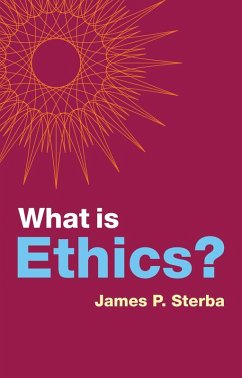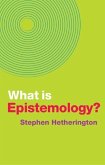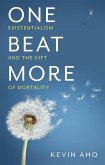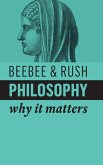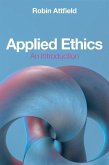Ethics is a field of study that we all need. This is because we all make choices, and ethics is about the general norms that govern how we should make those choices. Not surprisingly, there is disagreement over what the "norms" are, but by working through such disagreement, we can learn how to make better choices.
James P. Sterba presents a general overview of ethics, using relevant examples and accessible arguments. He takes up the question of why we should be ethical or moral, discusses competing ethical theories and proposes a way to reconcile them, and considers the relationship between ethics and religion. Ultimately, he reveals how the material discussed in the book can be used to make better ethical choices in our day-to-day lives.
What is Ethics? is a book you can rely on to improve your ability to make ethical choices.
Hinweis: Dieser Artikel kann nur an eine deutsche Lieferadresse ausgeliefert werden.
James P. Sterba presents a general overview of ethics, using relevant examples and accessible arguments. He takes up the question of why we should be ethical or moral, discusses competing ethical theories and proposes a way to reconcile them, and considers the relationship between ethics and religion. Ultimately, he reveals how the material discussed in the book can be used to make better ethical choices in our day-to-day lives.
What is Ethics? is a book you can rely on to improve your ability to make ethical choices.
Hinweis: Dieser Artikel kann nur an eine deutsche Lieferadresse ausgeliefert werden.
"A stimulating, fair-minded, and clear guide to ethics by a distinguished expert."
Charles Taliaferro, St. Olaf College
"This concise, lucid examination of ethics attempts to reconcile differences among major theories of ethics, thereby providing practical, reasonable guidelines for addressing today's pressing ethical issues."
Michael S. Pritchard, Western Michigan University
Charles Taliaferro, St. Olaf College
"This concise, lucid examination of ethics attempts to reconcile differences among major theories of ethics, thereby providing practical, reasonable guidelines for addressing today's pressing ethical issues."
Michael S. Pritchard, Western Michigan University

